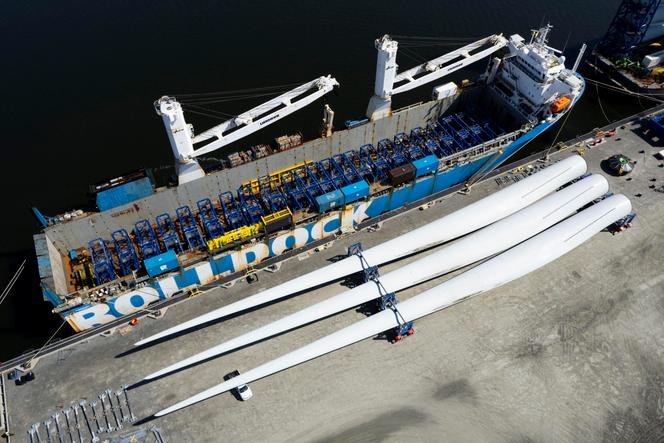Trump plunges renewable energy sector into uncertainty
November 19, 2024


Donald Trump has not yet formally returned to the White House but he is already plunging the renewable energy sector back into uncertainty, if not anxiety. In his own country, and also in Europe, to a lesser degree.
Will Joe Biden’s successor suspend all new offshore wind farm projects as soon as he takes office on January 20, 2025? He threatened to do so during the campaign, citing the need to protect whales from possible pollution, without any scientific evidence to back up his claims.
And what about the Inflation Reduction Act (IRA), enacted in August 2022 to promote, among other things, local manufacturing of technologies such as wind and solar power? The billionaire has said it again and again: he intends to attack this gigantic plan of tax credits and subsidies (in principle around $370 billion over 10 years, or €349 billion), “the green new scam,” to be abolished in whole or in part, according to his vision of things, which pays little heed to the fight against climate disruption.
On the stock market, uncertainty has had its first effect. The WilderHill Clean Energy Index, an index of US companies involved in “clean” energy, fell by up to 6.7% on November 6, the day after the election, according to Bloomberg. In September, the Republican Party candidate had declared himself a “big fan” of solar panels, before expressing reservations about their land use.
European companies seek to reassure
In addition to electric vehicles, Trump has especially fueled criticism of offshore wind turbine projects. These projects (“horrible,” in his words) depend on federal approval. This is a cause for concern even in Europe, where the sector boasts some of the world’s leading players, including in the export market. “Given the election results, “the risks for offshore wind projects have increased” on the other side of the Atlantic, acknowledged German developer RWE on November 12. Engie has three such projects underway but has not yet begun the construction phase. In the event they are scrapped, the French energy company estimates the loss in value to be just under €400 million. There’s also a question mark for cable manufacturers, “because the deployment of renewable energies determines the size of the power grid to be connected,” pointed out Michel Gioria, general delegate of the France Renewables trade organization.
Despite the risk of a moratorium on the offshore energy sector, a sector previously weighed down by inflation in the cost of raw materials, European companies are keen to reassure their prospective clients in the US. Whether in solar, onshore wind, or battery storage, “we’ve already developed renewable energy projects under various administrations,” “even before the IRA was introduced,” stressed Catherine MacGregor, Engie’s director general, on November 7. She insisted on “a huge and significant market need,” with demand for electricity expected to rise as new power-hungry data centers begin to draw from the grid as they come online.
You have 43.08% of this article left to read. The rest is for subscribers only.
Search
RECENT PRESS RELEASES
Related Post


